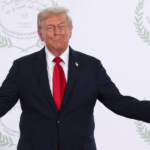The Israel-Iran conflict is poised to include economic targets as both sides seek leverage in the rapidly escalating series of attacks.
After Israel decimated Iran’s military in its initial wave of air strikes, reports on Saturday indicated Iranian energy infrastructure was under attack. That includes the Pars South gas field, considered to the world’s largest reservoir of natural gas, as well as oil refineries.
That comes as Israeli Prime Minister Benjamin Netanyahu warned on Saturday that, “We will strike every site and every target of the ayatollahs’ regime,” after he earlier urged the Iranian people to overthrow their government.
On Friday, Israel’s defense minister said Iran crossed “red lines” by launching its missiles at civilian areas as part of its retaliatory attacks.
Meanwhile, Tehran’s retaliation could similarly extend into energy markets. Despite Iran launching hundreds of missiles and drones at Israel, analysts have noted that it has few viable military options and its overall capabilities have been severely degraded by Israel.
That could spike oil prices even higher after they jumped 7% on Friday to more than $70 a barrel as markets reacted to the early stages of the Israel-Iran conflict.
Such a closure might entail use of mines, patrol boats, aircraft, cruise missiles and diesel submarines, while clearing the strait could take weeks or months.
“Given the significant global implication of such a closure, we believe that potential closure of the Strait is likely to be kept as last resort leverage and only to be considered in extremis,” Saravelos added.
That’s because Iran would quickly go from a “sympathetic victim to a dangerous nemesis in the eyes of most other countries,” while Western countries and perhaps even China would use force to reopen the strait, he predicted.
“And Tehran would have to worry that such a reckless threat to the world’s economies would convince Washington that the Iranian regime had to be removed,” Pollack added. “That fear is surely greater with U.S. President Donald Trump—who ordered the death of Iranian general Qassem Soleimani in January 2020—back in office.”









